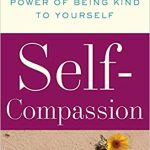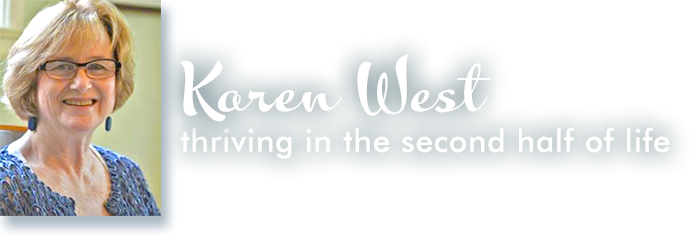In my last blog entry, I began writing about the book Self-Compassion: Stop Beating Yourself Up and Leave Insecurity Behind by Kristin Neff. In her book, Neff writes that when we make a mistake and hurt someone, in addition to feeling compassion for them, we should feel self-compassion for the suffering we are also experiencing because of our actions—even when we are not blameless, even when the suffering “stems from failures, personal weaknesses, or bad decisions.” (11) And Kristin Neff says, “Rather than condemning yourself for your mistakes and failures…you can use the experience of suffering to soften your heart” and to “let go of those unrealistic expectations of perfection…” (12)
I also found it very interesting that Neff suggests that we physically soothe ourselves by stroking our arms or giving ourselves a hug and speaking to ourselves in kind, sympathetic tones, saying something like “Poor darling. This is really hard right now.” (51) And as Neff says, “Because thoughts and emotions have the same effect on our bodies whether they’re directed to ourselves or to others…research suggests that self-compassion may be a powerful trigger for the release of oxytocin.” (48) Try this next time you’re hurting.
Many of us believe that when we mess up, we have to be tough on ourselves so we will become better people, but Neff says that when she first learned about self-compassion, she realized, “I wasn’t making myself a better person by beating myself up all the time…instead I was causing myself to feel inadequate and insecure, then taking out my frustration on people closest to me. More than that, I wasn’t owning up to many things because I was so afraid of the self-hate that would follow if I admitted the truth.” Neff asks, “How do you think you would feel if you could truly accept yourself as you are?” (14)
 Learning to accept yourself would be good at any age, but it’s especially important as we move into the second half of life. It is one of the tasks of elderhood—along with others like accepting the reality of impermanence. As Rabbi Zalman Schachter-Shalomi wrote in his book From Age-ing to Sage-ing: A Revolutionary Approach to Growing Older, “While we wrestle with many challenging issues in later life, success in spiritual eldering ultimately depends on answering one simple but potentially life-changing question. Rabbi Zusya of Hanipol, a great Hasidic master, posed that question shortly before his death. ‘In the coming world, they will not ask me, ‘Why were you not like Moses? They will ask me, ‘Why were you not what you, Zusya, could have been?” “The inner work of spiritual eldering helps us learn that we are definitely not perfect, but each of us is a “precious, unique, nonrepeatable experiment of the universe.” (107)
Learning to accept yourself would be good at any age, but it’s especially important as we move into the second half of life. It is one of the tasks of elderhood—along with others like accepting the reality of impermanence. As Rabbi Zalman Schachter-Shalomi wrote in his book From Age-ing to Sage-ing: A Revolutionary Approach to Growing Older, “While we wrestle with many challenging issues in later life, success in spiritual eldering ultimately depends on answering one simple but potentially life-changing question. Rabbi Zusya of Hanipol, a great Hasidic master, posed that question shortly before his death. ‘In the coming world, they will not ask me, ‘Why were you not like Moses? They will ask me, ‘Why were you not what you, Zusya, could have been?” “The inner work of spiritual eldering helps us learn that we are definitely not perfect, but each of us is a “precious, unique, nonrepeatable experiment of the universe.” (107)
People who grow up with critical parents get the message that they are responsible for their failures and that self-criticism will prevent them from making future mistakes. In Neff’s words,“The implication is that failure is an option box that need not be checked.” (28) But, of course, that isn’t possible. And besides, some of our best learning happens as a result of our failures. I especially appreciate that Neff says that self-criticism is actually “a convoluted form of self-care, an attempt to keep you safe and on track.” (34)
So, how does self-compassion work? Neff says that as she defines it, self-compassion has three core components. “First, it requires self-kindness, that we be gentle and understanding with ourselves rather than harshly critical and judgmental. Second, it requires recognition of our common humanity, feeling connected with others in the experience of life rather than feeling isolated and alienated by our suffering. Third, it requires mindfulness—that we hold our experience in balanced awareness, rather than ignoring our pain or exaggerating it. We must achieve and combine these three essential elements in order to be truly self-compassionate.” (40) More in my next blog entry.


2 thoughts on “Self-Compassion Leads to Self-Acceptance”
Thanks, Karen. I needed some self-compassion today. Perfect timing.
Thank you so much for telling me! I’m so happy you found my blog.